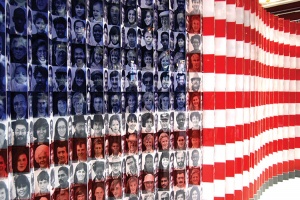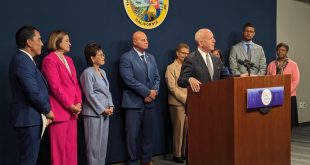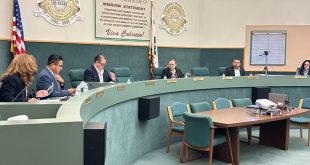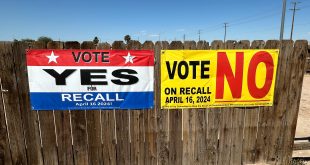
Immigration remains a hot-button topic, and how it’s tied to U.S. jobs and the economy creates much of the debate.
Critics of immigrants, especially undocumented immigrants, say they’ve taken jobs away from American workers. President Donald Trump emphasized that contention – often raised by Republicans – during his campaign with a controversial speech that some saw as anti-immigrant.
Among those disagreeing with Trump was immigration attorney Jacob Monty, a Republican who served on the National Hispanic Advisory Committee for Trump along the campaign trail.
“The notion that immigrants are taking jobs from U.S. workers is just plain wrong,” says Monty, founder of the law firm Monty & Ramirez LLP (www.montyramirezlaw.com) and the author of The Sons of Wetbacks. “Studies show they’re vital to keeping the economy running.”
A report two years ago by the National Academy of Sciences, titled “The Economic and Fiscal Consequences of Immigration,” concluded that immigrants are essential to America’s economic growth. And the U.S. Department of Labor’s 2017 breakdown of employment showed about 25 million people in the American workforce (16.7 percent) were immigrants.
With unemployment in the U.S. recently listed at a 17-year low (3.9 percent), Monty says immigrant workers are needed more than ever.
“We’re facing a labor crisis,” says Monty. “There aren’t enough U.S. workers to do a whole host of jobs. It affects every industry from construction to agriculture to the service industry and manufacturing.
“Immigration historically has been a way to augment our domestic labor supply, but our immigration system is completely broken, so it’s not a viable solution for employers that are in desperate need of workers. Over half of agriculture workers are undocumented. We need a temporary guest worker program; that’s what businesses have been wanting for over 20 years, but Congress has not acted on that.”
Monty gives three reasons immigrants are important to the U.S. economy:
- Food supply and security. Recalls and news of contaminations, Monty says, raise concerns about shortages of immigrant workers. “We don’t have enough food workers that harvest the food, process it and serve it to us,” Monty says. “The entire chain is woefully understaffed, and because of this dire labor crisis, our food supply is not secure and reliable.”
- Entrepreneurship. An analysis from the Small Business Administration found that 10.5 percent of U.S. immigrants own a business, compared with 9.3 percent of native-born Americans. “That statistic debunks the other fallacy out there that all these immigrants are nothing but left-wing, would-be Democrats, and that’s why we’ve got to keep them out – because they’ll be voting Democrat if we give them a path to citizenship,” Monty says. “They share many of the same values we have as Americans.”
- Clusters to count on in certain occupations. Compared with people born in the U.S., statistics show immigrants are more likely to work in buildings and grounds maintenance, construction, computer, math or science occupations, and jobs in food preparation or service. “We’re not talking about just minimum wage jobs,” Monty says. “There is a lack of people in the U.S. even bothering to respond to an ad for many of these jobs. And we have an inadequate supply of visas at both the high end and low end.”
“If you have a willing worker and a willing employer,” Monty says, “our immigration system should be able to unite those two.”
About Jacob Monty
Jacob Monty is an immigration attorney and founder of the law firm Monty & Ramirez LLP (www.montyramirezlaw.com), located in Houston. He is the author of The Sons of Wetbacks. Monty has appeared on Fox News, CNN and MSNBC regarding immigration and has advised the New York Yankees on immigration matters for over a decade. He has held presidential and gubernatorial appointments to the University of Houston Board of Regents, the Texas Private Security Board, the Texas Higher Education Coordinating Board, the Board of Directors of the Border Environment Cooperation Commission, and the National Hispanic Advisory Council for Trump.





